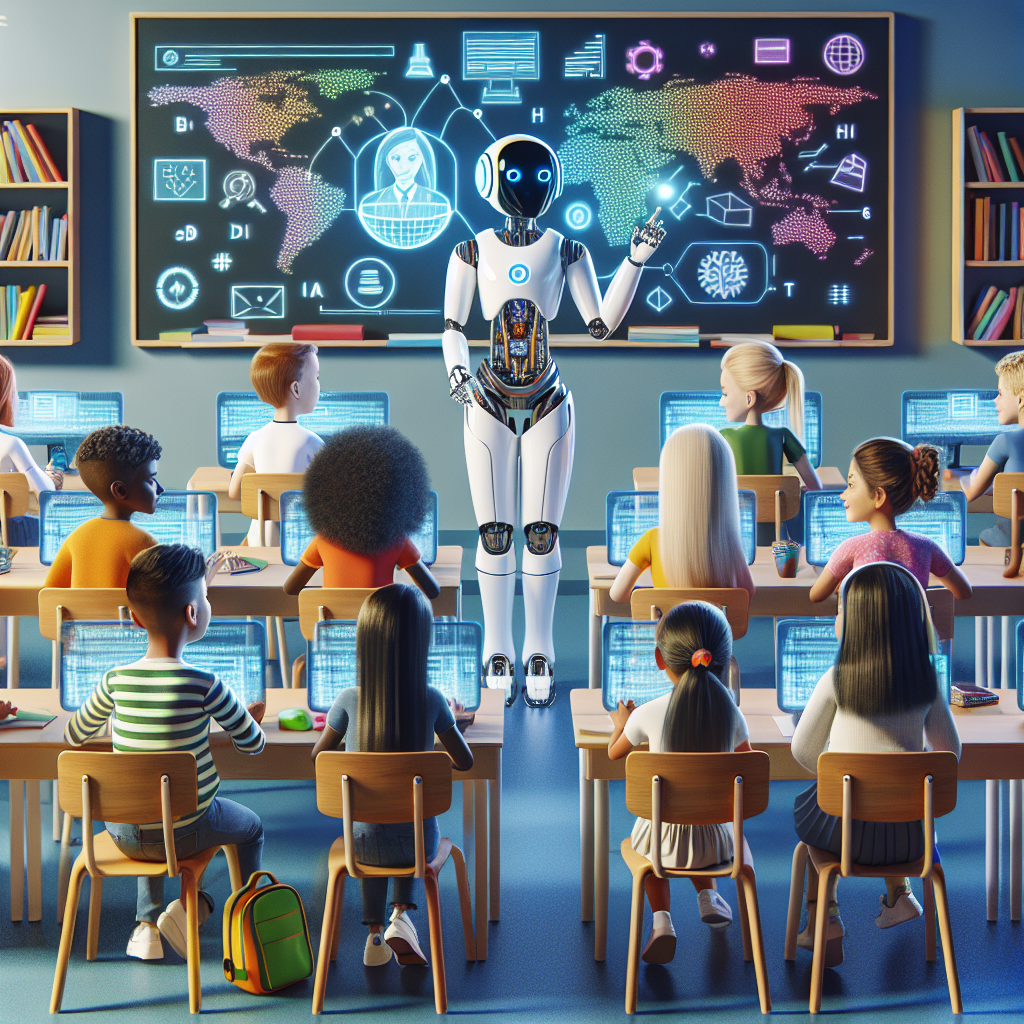The Future of Education: How AI is Revolutionizing Learning
In recent years, artificial intelligence (AI) has been making waves in almost every industry, and education is no exception. With the rapid advancements in technology, AI has the potential to revolutionize the way we learn and teach. From personalized learning experiences to automated grading systems, AI is changing the landscape of education as we know it.
AI in education is not just about using technology for the sake of it; it’s about enhancing the learning experience for students and teachers alike. By leveraging the power of AI, educators can create more efficient and effective learning environments that cater to the unique needs of each student. This can lead to improved outcomes, increased engagement, and a more personalized approach to education.
One of the key benefits of AI in education is personalized learning. AI algorithms can analyze data on students’ performance, learning styles, and interests to create customized learning paths. This means that each student can receive individualized instruction that is tailored to their specific needs and abilities. By providing targeted feedback and support, AI can help students reach their full potential and excel academically.
Another way that AI is revolutionizing education is through the use of virtual tutors and assistants. These AI-powered tools can provide students with instant feedback on their work, answer questions, and offer guidance on difficult concepts. Virtual tutors can also adapt to each student’s pace of learning, providing additional support when needed and challenging them to reach higher levels of understanding.
AI is also changing the way teachers work. By automating routine tasks such as grading, lesson planning, and administrative duties, AI can free up teachers to focus on what they do best: teaching. This can lead to a more efficient and productive classroom environment, where teachers can spend more time interacting with students and less time on paperwork.
In addition to personalized learning and virtual tutors, AI is also being used to improve educational content and resources. AI algorithms can analyze vast amounts of data to identify trends and patterns in student performance, helping educators to design more effective curriculum and instruction. AI can also be used to create interactive learning experiences, such as virtual reality simulations and gamified lessons, that engage students and make learning more fun and engaging.
Despite the many benefits of AI in education, there are also challenges and concerns that need to be addressed. One of the main concerns is the potential for bias in AI algorithms. If not properly trained and tested, AI systems can perpetuate existing inequalities and stereotypes, leading to unfair outcomes for certain groups of students. Educators and policymakers need to be aware of these risks and take steps to ensure that AI in education is used ethically and responsibly.
Another challenge is the need for proper training and support for teachers to effectively use AI tools in the classroom. Many educators may be unfamiliar with AI technology and unsure of how to integrate it into their teaching practice. Professional development programs and ongoing support are essential to help teachers build the skills and confidence needed to make the most of AI in education.
Despite these challenges, the future of education looks bright with the integration of AI technology. By harnessing the power of AI to personalize learning, provide virtual tutors, and improve educational content, we can create a more efficient, effective, and engaging learning experience for students. With the right strategies and support in place, AI has the potential to revolutionize education and help students reach their full potential.
FAQs
Q: How is AI being used in education?
A: AI is being used in education in a variety of ways, including personalized learning, virtual tutors, automated grading systems, and interactive educational content. AI algorithms can analyze data on students’ performance, learning styles, and interests to create customized learning paths. Virtual tutors can provide instant feedback and guidance on difficult concepts. Automated grading systems can streamline the grading process for teachers. AI can also be used to improve educational content and resources, such as virtual reality simulations and gamified lessons.
Q: What are the benefits of AI in education?
A: The benefits of AI in education include personalized learning, improved outcomes, increased engagement, and a more efficient and effective learning experience. By leveraging the power of AI, educators can create customized learning paths for each student, provide instant feedback and support, and design interactive learning experiences that engage students. AI can also automate routine tasks for teachers, freeing up more time for teaching and interaction with students.
Q: What are the challenges of using AI in education?
A: Some of the challenges of using AI in education include the potential for bias in AI algorithms, the need for proper training and support for teachers, and concerns about data privacy and security. AI systems can perpetuate existing inequalities and stereotypes if not properly trained and tested. Many educators may be unfamiliar with AI technology and unsure of how to integrate it into their teaching practice. Educators and policymakers need to be aware of these risks and take steps to ensure that AI in education is used ethically and responsibly.

